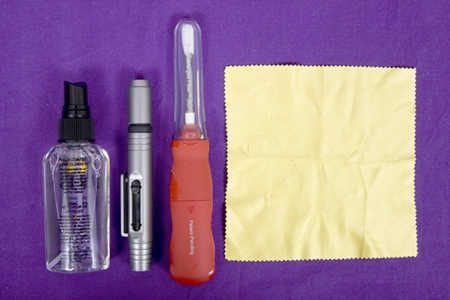Everyone believes in looking after their investments (I hope). After all, our financial advisor Graham MacDonald has many tips for you each week to ensure the viability and longevity of your financial investments. Unfortunately Graham does not have tips on maintaining your photographic investments, so here are a few tips on how to look after your photographic investments – investments that can be quite big ticket investments too.
My favorite lens was a 40 mm Hasselblad wide angle, with a huge bit of glass on the front that would cost in Thailand over 200,000 baht. Makes you think, doesn’t it. You can buy a second hand car for that sort of money!

However, even humble point and shooters will benefit from being looked after. Any camera will give you better and more reliable service, and not let you down when you are about to take the one shot that will make you millions of baht in the international news market.
With today’s digital cameras you have a combination of optical hardware and electronic software all encased in an often plastic case, so there are many areas that will need looking after.
The first concept is to understand common items that will go towards destroying your camera. These include dust and grit, moisture and condensation, battery acid and being dropped. Looking after your investment is then a simple case of countering the above factors. Let’s look at some of these.
Moisture and condensation are the easiest ones to counter, but the dampness comes from more than just being caught out in the rain. Thailand is a hot and humid environment. How many times have you taken your camera outside after being in an air-conditioned office and found you could not see through the viewfinder because it had steamed up? That is condensation. The best answer here is to keep small sachets of silica gel in your camera bag, or in the little “socks” you keep the lenses in. When the silica gel changes color you can pop them back in the micro-wave and rejuvenate them very easily. Many bottles of medication come with perfect little sachets in the top of them.
There will also be times when you get caught in the rain, or you may even want to get rain shots. The camera body is reasonably water proof, but you should carefully wipe the outside of the case dry afterwards, and especially blow air around the lens barrel and the lens mount.
To look after the lens, make sure that you do not touch the optical glass with your fingers. Make sure that you put on the lens cap when not shooting pictures. To clean the lens, use good lens cleaning equipment. Always use a good lens brush, lens blower and lens cloth to do the job.
Temperature can kill a camera. You should always keep the camera out of the sun. Do not store your digital camera in the glove box of your car in our tropical environment as temperatures there can become very high.
With digitals, you need to keep the camera away from magnets of any form which can affect the circuitry of your digital camera. Do not place the camera on top of a computer, for example.
Look after the memory card by avoiding touching the terminals, and always carry a spare!
Another danger is leakage from batteries. Just about every camera in the world these days has a battery, even if it is just to drive the needle on the light meter. Acid leakage from a battery can totally ruin a modern camera, getting into the electronics so that it never works properly again. The answer here is to discard the batteries every twelve months, even if they seem to be fine, and if you are not going to be using the camera for an extended period, then take the batteries out altogether.
Finally, keep your camera in a soft case that can absorb some shocks. Not the silly plastic thing it came in. If you have not got one – then go out and buy one today. They are very inexpensive, especially when compared to the cost of the camera! Protect your investment!




